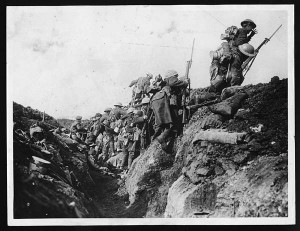Hello ladies and gents this is the Viking telling you that today we are talking about some events that changed the world



The assassination of Archduke F. Ferdinand and Outbreak of World War I – June 28, 1914

In 1914, Europe was a tinderbox of tension and military rivalry. The spark for war could have been many incidents; but, as it happened the assassination of an Austrian Archduke – Franz Ferdinand by a Serb provoked widespread declarations of war and the fulfilment of treaties which led to the horrendous conflict of the First World War.
The war was to last four years and cost the lives of millions of men and women from all corners of the world. The First World War also led to profound social change. After the First World War, there was increased recognition for the role of women in society, with many countries giving women the vote.
There was also greater emphasis placed on the role of the working class, who had fought and died in the war, and now wanted a better peace. In 1918/19 there was global flu pandemic which killed nearly 50 million people (many young adults) but such was the carnage of the First World War, it had only a limited effect on changing the world as many governments downplayed its impact.
Russian Revolution 1917

Since the publication of Marx’s Communist Manifesto, there had been sporadic Communist revolutions in European countries, but nothing had really succeeded. But in October 1917, the Bolshevik revolution, led by Lenin, brought about a radical new form of government with worldwide implications. Lenin was a fervent Marxist and wasted little time in implementing his version of a ‘dictatorship of the Proletariat’. Communist Russia divided the world. It was seen by some as an alternative to the inequities of Capitalism and by others as an embodiment of totalitarianism and lack of freedom. The Soviet Union transformed the lives of Russian people – it led to economic growth, but also increased political repression. The ideology of the Soviet Union also led to a prolonged ‘Cold War’ – with an ideological divide between western democracy and Soviet Communism.
Treaty of Versailles 1919

After the First World War, American President Woodrow Wilson promoted an idealistic 14 points and creation of a new “League of Nations” to help prevent war. However, the American Senate voted against joining the League of Nations and France and Britain sought ‘reparations’ from Germany and the defeated powers.
Germany was occupied by French troops until the mid 1920s and the German army severely limited. These restrictions were considered ‘humiliating’ by many German army officers and this sense of ‘betrayal’ would be exploited by Hitler in the coming years. French general Ferdinand Foch stated.
“This is not peace. It is an armistice for twenty years.” The Treaty of Versailles and other similar treaties arbitrarily re-drew the map of the world – creating new countries, such as Czechoslovakia, Finland, Poland, Latvia, and Yugoslavia out of ethnically mixed populations, which would prove problematic many years later.
Just 20 years later, Hitler would plunge the continent into conflict for a second time in an effort to restore lost pride.
And as always have a chilled day from the Viking
Comments
Post a Comment